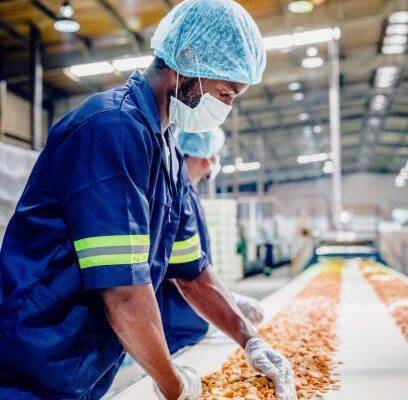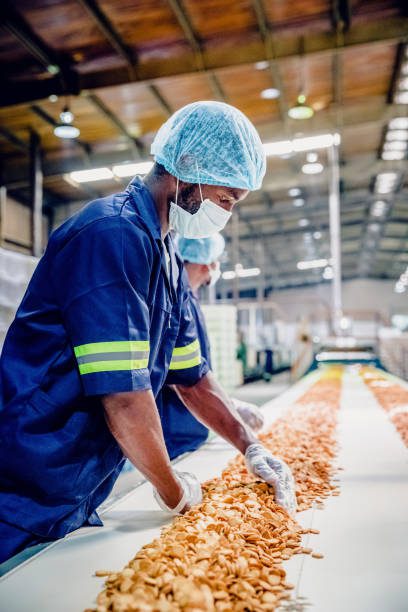As a leading provider of high-quality food processing solutions, we take pride in offering innovative products that meet the strictest industry standards. Our thermoplastic food-grade belts are no exception, and we’re excited to share with you the numerous benefits that make them stand out in the market.
What Are Thermoplastic Food-Grade Belts?
Thermoplastic food-grade belts are a type of conveyor belt that is specifically designed for use in food processing and handling applications. These belts are made from thermoplastic materials, such as polyethylene (PE) and polypropylene (PP), which are known for their durability, flexibility, and resistance to moisture, chemicals, and temperature variations. They are also FDA-approved, meaning they are safe for direct contact with food.

Superior Hygiene and Food Safety
One of the key advantages of thermoplastic food-grade belts is their superior hygiene and food safety features. These belts are designed to be easy to clean and sanitize, reducing the risk of food contamination and ensuring compliance with strict food safety regulations. They are resistant to moisture and chemicals, preventing the growth of bacteria, mold, and other harmful microorganisms that can compromise food quality and safety.
Thermoplastic food-grade belts also have a smooth surface and minimal crevices, which further minimizes the risk of food debris getting trapped and becoming a breeding ground for bacteria. This makes them ideal for applications where cleanliness and food safety are critical, such as in meat, poultry, dairy, and bakery processing.
Enhanced Durability and Performance
In addition to their superior hygiene and food safety features, thermoplastic food-grade belts are known for their durability and performance. These belts are engineered to withstand the demanding conditions of food processing environments, including extreme temperatures, moisture, and heavy loads. They are resistant to wear, tear, and abrasion, ensuring long-lasting performance and minimizing downtime for belt replacements.
Thermoplastic food-grade belts also offer excellent flexibility and tracking properties, allowing for smooth and efficient conveying of food products without the risk of belt slippage or misalignment. This helps improve productivity and throughput in food processing operations, reducing costs and increasing overall efficiency.
Versatility and Customization Options
Another benefit of thermoplastic food-grade belts is their versatility and customization options. These belts can be tailored to suit the specific needs of different food processing applications, including size, thickness, surface texture, and color. This allows for precise control over the conveying process, ensuring optimal performance and product quality.
Thermoplastic food-grade belts can also be customized with various accessories, such as sidewalls, flights, and cleats, to accommodate different types of food products and processing requirements. This makes them suitable for a wide range of applications, including horizontal, inclined, and vertical conveying, as well as sorting, accumulation, and cooling processes.
Sustainability and Environmental Friendliness
As a responsible and environmentally-conscious company, we understand the importance of sustainability in today’s world. That’s why we’re proud to offer thermoplastic food-grade belts that are eco-friendly and sustainable.
Thermoplastic food-grade belts are made from recyclable materials, such as polyethylene and polypropylene, which can be recycled and reused to reduce environmental impact. These belts also have a long service life and require minimal maintenance, further reducing their environmental footprint compared to traditional conveyor belts made from PVC or other less eco-friendly materials.
Furthermore, thermoplastic food-grade belts do not release harmful substances or odors during their use, ensuring a safe and healthy working environment for food processing personnel and minimizing the impact on food quality and safety.



Leave a Reply